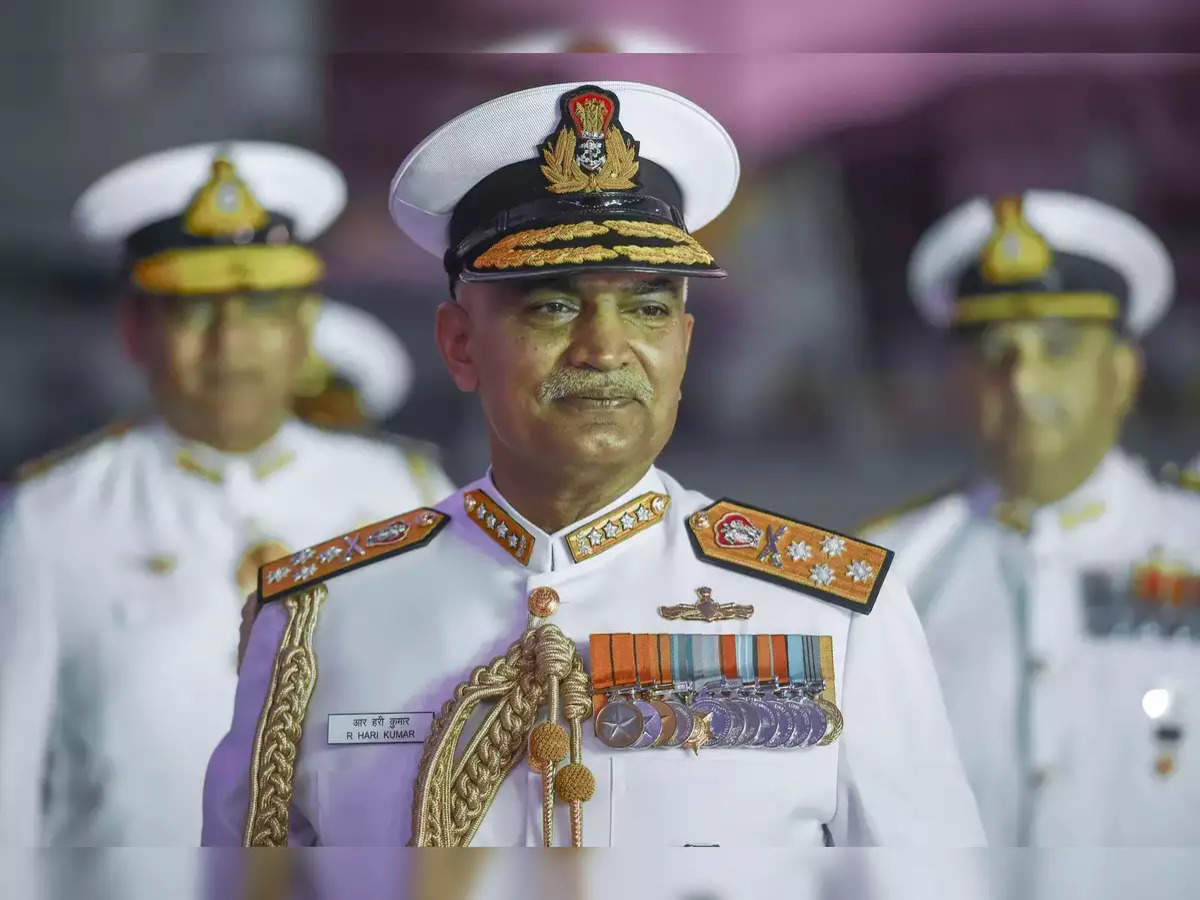In the heart of New Delhi, Admiral R Hari Kumar expressed on Thursday that, as India once again directs its attention towards the seas for economic advancement, he perceives “indications of an ambitious maritime authority.” During his discourse at an event orchestrated by the National Maritime Foundation (NMF), Admiral Kumar also acknowledged the noteworthy involvement of this think-tank in formalizing the Maritime Anti-Piracy Act of 2022, an achievement often overlooked.
“As we navigate the intricate dynamics in the region, characterized by ongoing conflicts in Europe and the Middle East, and the rise of non-traditional threats, a profound comprehension of the evolving geopolitical intricacies, along with corresponding strategies to counter these challenges, becomes a necessity, amplifying the NMF’s role in the present context,” he articulated.
Remarkably, the NMF collaborated with the Navy to shape the groundbreaking Indian Maritime Security Strategy (IMSS), unveiled in 2015. Admiral Kumar highlighted that this document “continues to guide the Navy’s endeavors in safeguarding, conserving, promoting, and pursuing our national interests in the maritime realm.” The foundation’s contributions to this strategic document underscore its profound insight into maritime challenges, devoted to crafting effective responses, added the Navy chief.
Addressing the inaugural session of the Vice Admiral K K Nayyar Memorial Lecture, Admiral Kumar reiterated the substantial contribution of the NMF in formalizing the Maritime Anti-Piracy Act of 2022, an acknowledgment often overshadowed. He emphasized that this legislation has bolstered the Indian Navy, particularly in countering piracy attempts.
“We must cultivate a profound understanding of the significance of the seas, not merely as a source of trade but as a strategic domain influencing our security, economy, and environment. This necessitates elevating maritime awareness and subsequently enhancing consciousness, fostering maritime research, and promoting careers related to the maritime sector,” expressed Admiral Kumar.
“We are endowed with a distinctive maritime geography… It is a propitious moment today to recall and reaffirm the role of maritime power in her ascent and relevance. The seas, as the conduit of culture, connectivity, and commerce, facilitated prosperity in pre-historic Bharat,” he added. In his discourse, Admiral Kumar praised the maritime prowess during the era of ancient kingdoms, such as the Mauryas and Guptas, extending to the periods of the Cholas and Marathas.
“The maritime endeavors of the Chola kingdom exemplified the maritime virtuous cycle, illustrating the symbiotic relationship between maritime trade and naval strength, a defining characteristic of contemporary maritime powers. We witnessed this phenomenon with the European powers, followed by the US and China. And now, I sense, it is our turn,” he asserted. “So, as Bharat once again turns its attention to the seas… for economic growth, I discern the signs of an aspiring maritime authority,” he added.
Reflecting on Vice Admiral Nayyar’s vision of revitalizing India’s maritime prowess, Admiral Kumar emphasized that it resonates strongly today, and it is now “our collective responsibility” to build upon his legacy, foster maritime thinking, and ensure that “India continues to ride the waves” with unwavering zeal and élan. “The Navy itself is undergoing transformation… be it ‘ghulami ki mansikta se mukti’ or ‘virasat pe garv’… There is criticism from many quarters, but we are transforming rapidly. And, it is catching pace. We aspire to be a fully aatmanirbhar (self-reliant) Navy by 2047, a ‘post-modern Navy’ as Geoffrey Till mentions in his book Sea Power; that is our aspiration. I believe, 2047 is distant, perhaps we will achieve that even sooner,” affirmed Admiral Kumar. As the country’s inaugural maritime think-tank, the NMF has burgeoned in stature and potency, addressing an array of themes and issues that collectively constitute comprehensive maritime authority, he concluded.









